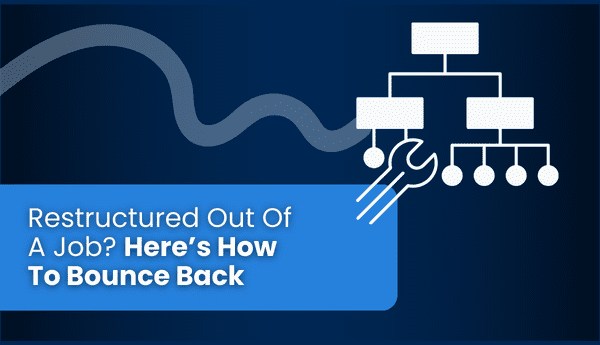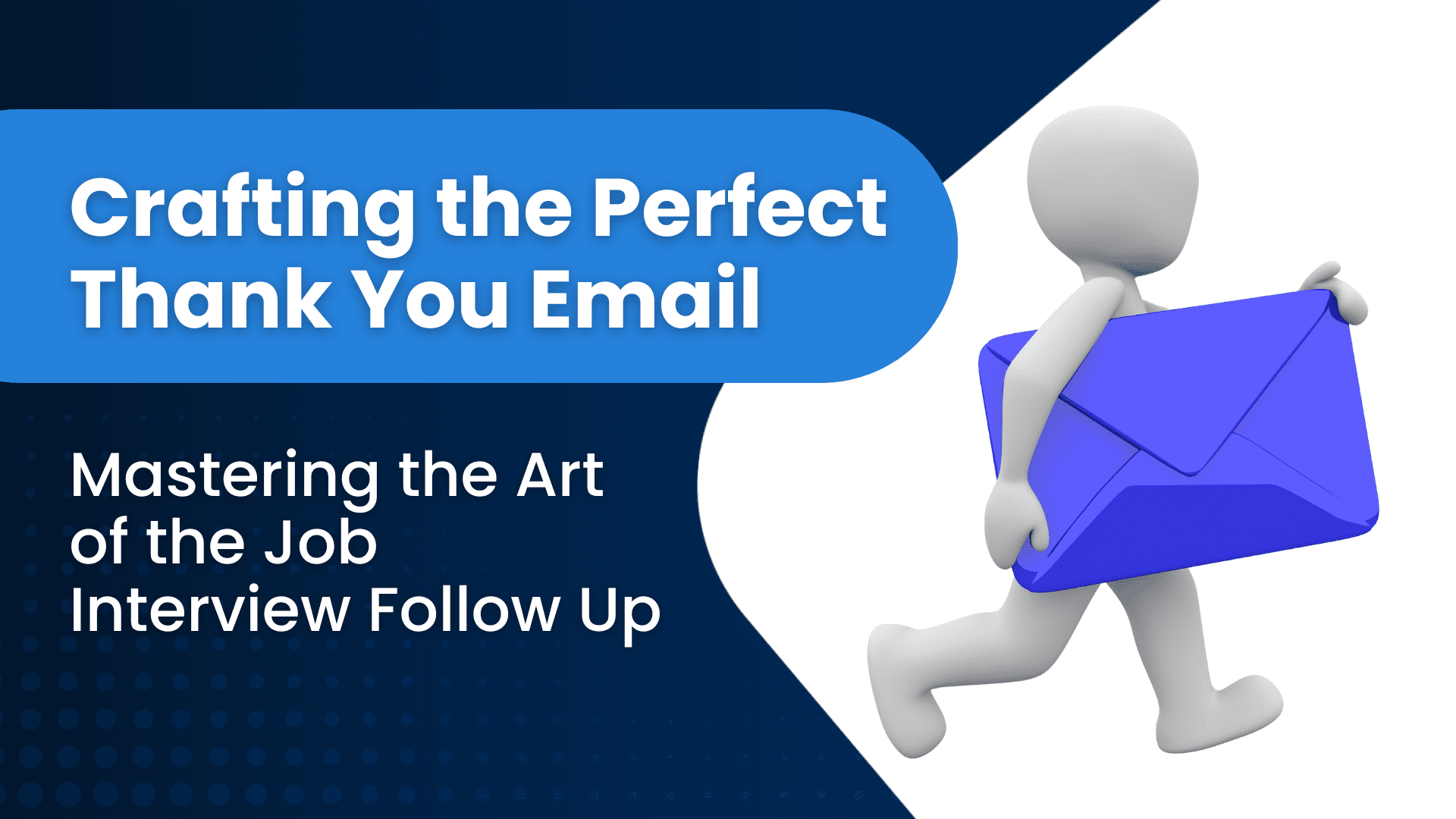Losing your job as a result of company restructuring can be a difficult experience, whether you’ve been given advance notice or the change comes as a surprise. People often experience a range of emotions during this type of shift, including sadness, fear, and anger. Job loss due to restructuring can leave you with decreased self-confidence, as well as many questions about what to do next.
Bouncing back from being restructured out of a job requires you to see this change as an opportunity to find something new. By taking a few steps, you can successfully navigate the job market and land your next role.
Step 1: Get into the Right Headspace
Feeling a bit down in the dumps is normal after losing a job. Thinking positively will be important on your path to finding your new role. Be kind to yourself. Use positive self-talk and continue working on seeing this experience as an opportunity rather than a loss. Try making a list of all of your best professional and personal attributes that make you hireable – this will likely come in handy for Step 2.
Read: “Bouncing Back from Job Loss: The 7 Habits of Highly Effective Job Hunters” for more tips on how to remain positive and focused on finding your new job.
Step 2: Ramp Up Your Resume
If you were restructured out of a job after many years in your role, or if the restructuring came as a surprise, chances are your resume needs some updating. Take stock of what’s already in there and remove anything that is no longer relevant, or that can be replaced by better examples. When listing recent accomplishments, try to quantify what made them successful by using numbers, if possible. And if you weren’t updating your resume regularly before, make it a habit to do so in the future each time you have a major achievement.
Read: “The Best Finance Resume We’ve Ever Received” for more tips on writing a great resume.
Step 3: Recharge Your LinkedIn Profile
LinkedIn is a powerful social media tool that can connect you to others in the industry and allow you to demonstrate your most desirable skills. Just as you’ve updated your resume, you should also refresh the information in your LinkedIn profile to reflect the most relevant and interesting information for your work history and accomplishments. You should also make note of the fact that you’re seeking new opportunities in your industry, in case any of your contacts knows of roles that you might be interested in.
As well, you should take advantage of LinkedIn’s search engine qualities by finding common keywords in job posts that interest you, and then using those keywords throughout your profile, particularly in your summary section.
Read: “The Best LinkedIn Tips for Active Finance and Accounting Job Seekers”, “3 Reasons Finance Recruiters Are Passing Over Your LinkedIn Profile”, and “Tips From Toronto Recruiters – How to Write a LinkedIn Summary” for additional insight into making the most of your LinkedIn profile.
Step 4: Network, Network, Network
Start reaching out to those you know in your industry to find out if there are any available opportunities and to assess what the current job market looks like. Try to schedule time with those in your network to catch up over coffee, but be sure to make it about actually catching up and not just about asking for information for your own purposes.
During your conversation, try to learn more about your contact’s industry (if different from your own), organization, and connections they have. Connect with as many people as possible, and keep the meetings informal. Also, be sure to touch base with those you’ve contacted to keep the relationship going.
Read: “Just Lost Your Job? This Day-by-Day Timeline Will Help You Land a New One” for a great structured way to look at starting the job search again.
Step 5: Connect with a Recruiter
You should be making a full-time job out of finding your next full-time job. Searching for jobs can take a lot of time and energy, but working with a recruiter can make this process easier and more efficient. Meet with a recruiter who specializes in the finance and accounting industry, and let them know that you are looking for a new opportunity. Be specific about your skills and the areas in which you excel so they can help you find a role that’s right for you.
Select a recruiter who knows about both permanent and contract spaces, and be open to contract positions that can help keep your skills sharp and potentially allow you to gain experience in a different industry.
Read: “Five Mistakes to Avoid With a Finance Recruiter” to learn how to build the most constructive relationship possible with your recruiter.
Key Takeaways
- Change your mindset from one of despair to one of hope and forward thinking.
- Refresh your resume with relevant and exciting accomplishments.
- Update your LinkedIn profile and include relevant keywords wherever possible.
- Treat your job search like a full-time job.
- Reach out to your contacts and connect in person, if possible.
- Meet with a recruiter and be clear about your areas of expertise.
Your Next Step
No one should walk the job search or hiring road alone. At Clarity Recruitment we help others realize their success through a process that marries proprietary technology with unwavering commitment. Contact us today to take control of your career, or to partner with us to hire well.
Clarity Recruitment, connecting exceptional people with remarkable companies.




